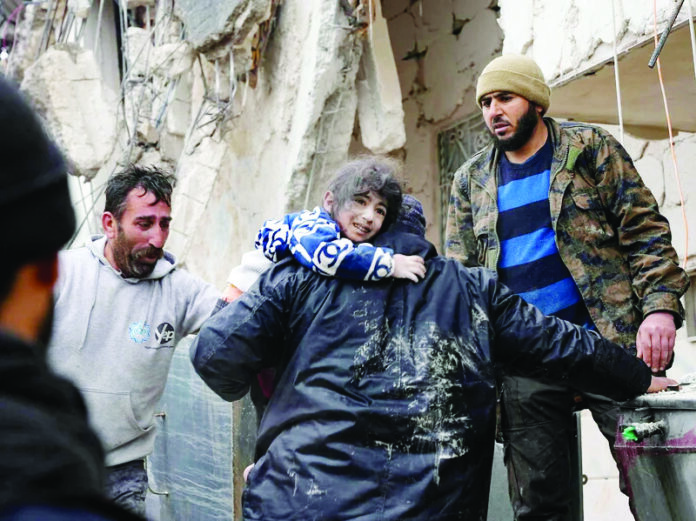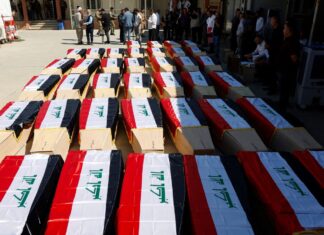ISTANBUL (Combined Sources) — A powerful earthquake rocked southeastern Turkey and northern Syria early Monday, killing more than 3,400 people and injuring thousands more.
The 7.8 magnitude quake hit at 4:17 a.m. local time in Turkey’s Gaziantep province, the US Geological Survey says.
Hundreds of families are still trapped, according to rescue workers. Turkey’s Interior Disaster Ministry says it has deployed over 9,600 search and rescue personnel to look for possible survivors. More than 2,800 buildings have collapsed, authorities said.
Citing Turkish authorities, the AP reports at least 2,316 people were killed in 10 provinces, and more than 13,000 were injured.
In Syria, at least 1,106 people have died, according to the AP. Syria’s Health Ministry says more than 650 people were killed in government-held areas, and about 1,400 are believed to have been injured. Groups in the rebel-held northwest say the death toll is at least 450.
Among those who perished in Syria were four Armenians, including two members of the same family, Mirna Tenkejian, and her teenaged son, Alber Tenkejian, who died in the rubble of their apartment building in the Armenian-populated town of Aziziye.











